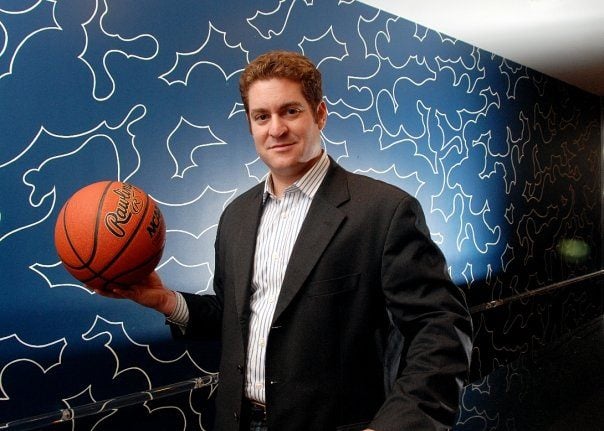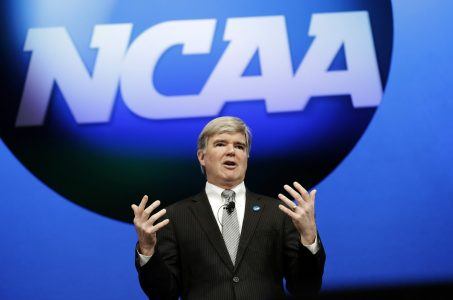Is DraftKings-FanDuel Merger Threatened by Antitrust Laws?
Posted on: January 30, 2017, 03:00h.
Last updated on: January 30, 2017, 03:13h.
DraftKings’ and FanDuel’s announcement in November that they would merge to form a true DFS behemoth put an end to months of will-they-won’t-they speculation.
But why has it all gone silent since? Why the hold up?

FanDuel was initially reluctant to embrace a merger; in 2015, its CEO Nigel Eccles dismissed the idea out of hand, citing, in his view, some questionable business decisions of his competitor.
But after a year in which each company was forced to shell out millions fighting their various legal and political battles, pressure from private investors in both companies began to make a combination inevitable.
Here were two companies spending millions attempting to out-market each other, while also separately fighting expensive battles on several fronts across the US, hiring lawyers and lobbyists.
These were costs that could be shared by a consolidated group.
Anti-trust Issues
Writing in Forbes last week, Marc Edelman, a professor of law at the City University of New York, believes that the hold up comes down to an antitrust issue and that there is at least some chance that the merger will not be allowed to go ahead.
Antitrust laws are designed to regulate corporations to protect fair competition for the benefit of consumers. That means preventing the creation of monopolies or companies that are too dominant within one market.
A combined DrafKings and FanDuel, with around a 95 percent dominance of the DFS market, falls dead center into the latter category.
“State-by-state regulations and licensing fees make it very expensive for new companies to enter the marketplace, at least in certain states,” writes Edelman, who also happens to be a former attorney specializing in antitrust law. “Meanwhile, FanDuel and DraftKings have a nearly complete bottleneck on potential partnerships with sports leagues and teams.
“Indeed, a combined entity would include equity interests from Major League Baseball, the National Basketball Association, the National Hockey League, and at least two National Football League teams.”
Hanging in the Balance
There has been a precedent in the gambling industry, at least in the UK, where, in 1998, a proposed merger between bookmaking giants Ladbrokes and Coral was blocked by regulators on the grounds it would have “a dampening effect on innovation and a reduction in consumer choice.”
Last year, in an era of increased competition where online sports betting has flooded the market with new brands, the two companies tried again and were approved.
But unlike the UK sports betting sector, Daily Fantasy Sports is hardly a crowded market.
“While it would be folly to conclude with certainty that a DraftKings-FanDuel merger will not ultimately close,” concludes Edleman, “FanDuel and DraftKings’s seven weeks of silence since announcing their proposed merger on November 18 helps to corroborate [that] … a merger of DraftKings and FanDuel is far from a sure thing under federal antitrust law.”
Related News Articles
Las Vegas Golden Knights Strike In-Arena Branding Partnership with William Hill
NCAA Lays Down Its ‘Model’ Sports Betting Legislation in Indiana
Most Popular
Las Vegas Overstated F1 Race’s Vegas Impact — Report
Vegas Strip Clubs Wrestle in Court Over Animal Names
Most Commented
-
End of the Line for Las Vegas Monorail
— April 5, 2024 — 90 Comments -
Mega Millions Reportedly Mulling Substantial Ticket Price Increase
— April 16, 2024 — 6 Comments -
Nearly Abandoned Mall Outside Vegas Soon to Have Only One Tenant
— March 12, 2024 — 5 Comments -
Long Island Casino Opponents Love New York Licensing Delays
— March 27, 2024 — 5 Comments
















No comments yet